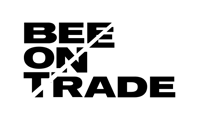It is difficult for companies to manage compliance in different countries, especially in China where trade management and trade processing can be complex due to various government agencies and constantly changing local regulations
Companies should establish policies and procedures to efficiently and effectively manage compliance and consider hiring a third party to assist with compliance oversight.
Some government agencies within China create unique challenges for their importers globally.
These agencies include:
- Customs Commerce (MOFCOM)
- Agriculture (AQSIQ)
- China Food & Drug Administration (CFDA)
- Foreign Exchange Bureau (SAFE)
- Administration of Taxation (SAT)
To self-assess their internal trade compliance, companies can:
- Know their facilities and how they operate
- Know the number and value of import declarations they have filed
- Know their duties and ensure they are accurately calculated and paid on time
- Know their price declaration history to watch for fluctuations that may indicate a problem
- Develop a management policy for their supply chain to ensure correct classifications are used
- Know the status of their compliance documents and ensure accuracy and retention
- Monitor and resolve issues with classification, valuation, and missing documents
- Evaluate their freight forwarders or customs brokers to ensure they are legitimate and keep copies of invoices and documents
- Maintain a written handbook for trade compliance policies
To ensure they are meeting these goals, companies can ask themselves how quickly they can respond to a Customs audit and provide the values of regularly imported items with corresponding customs declarations from the last three years.
If it would take more than six months to do this, the company should review and adjust its compliance goals to ensure a timely response if Customs conducts an inspection.
